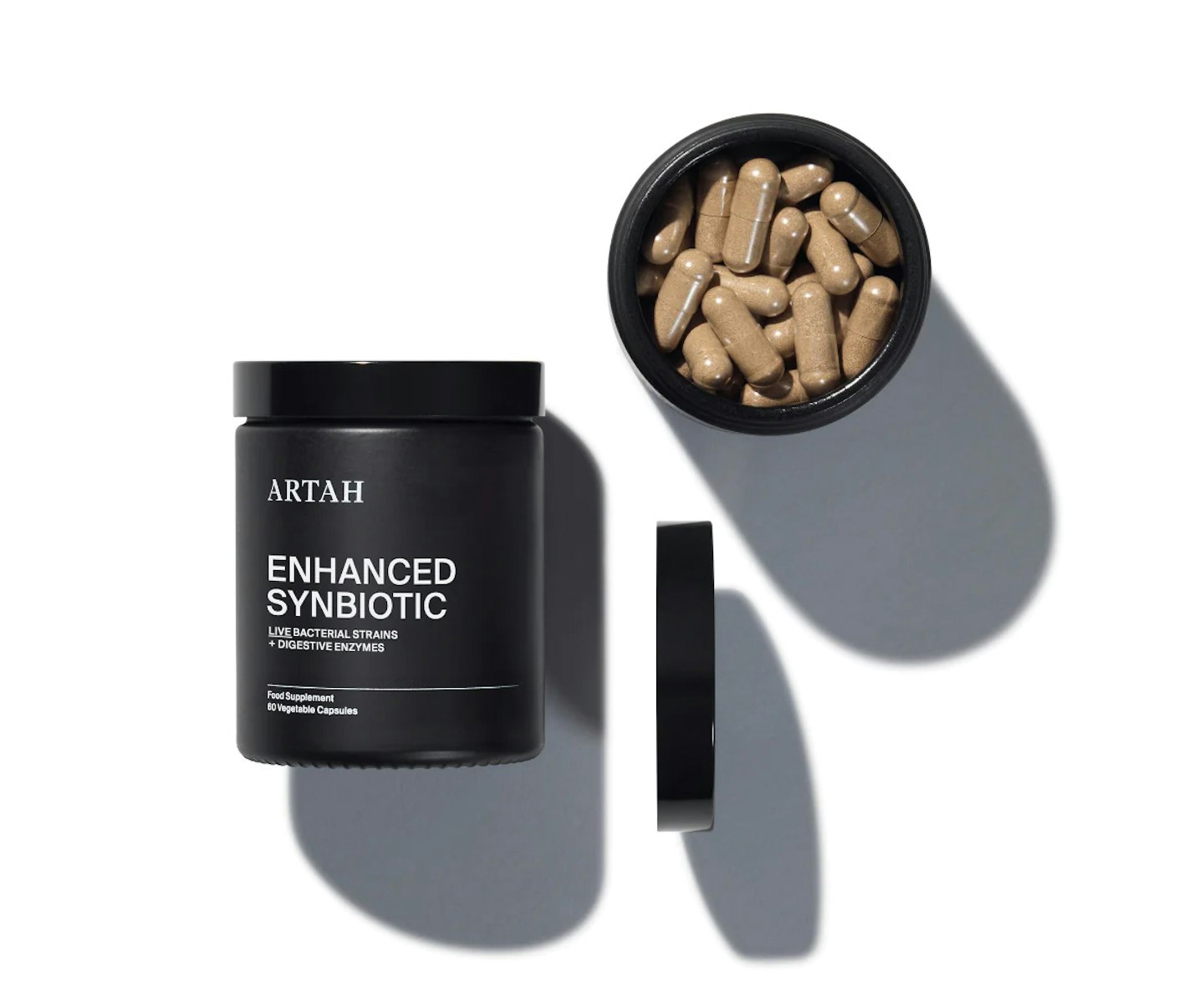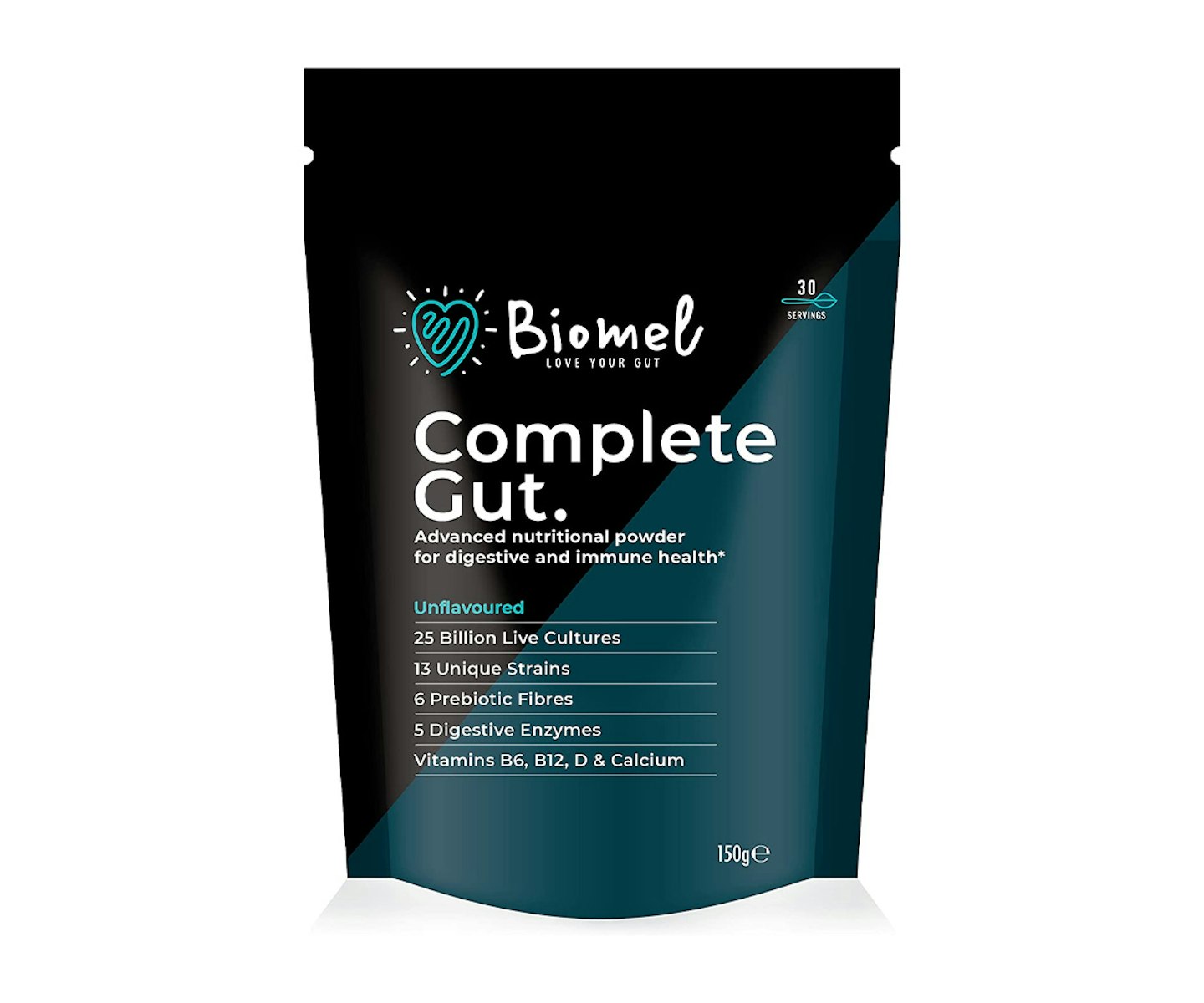If you're searching for the best probiotics for women over 50, you've likely come across a whole range of different brands - all promising good gut health. Probiotics, often considered one of the best supplements for overall health, can help you balance your gut microbiome - if you find the right one for you. Whether you are aiming to heal your gut or looking to keep your digestive system in tip-top shape, probiotics are a valuable asset to your wellness arsenal. We've put together a guide to all things probiotics - from capsules to water-based to help you make the right choice for your health. Before we begin, it's important to consult a healthcare professional before starting any new supplement regimen to ensure it's appropriate for you or any medication you may be on.
Probiotics have countless benefits, but can we get them from food? Symprove's Registered Dietician, Dr Sammie Gill, explains, "Probiotics and fermented foods are often grouped together, but they are, in fact, distinctly different. It's not a case of one being 'better' than the other. They both have their place and for different reasons." Fermented food such as sauerkraut, kimchi, and kefir are excellent for your gut - but if you are struggling with food intolerances, digestive issues or bowel problems, the right probiotic strain could be just what you need to regain equilibrium in the gut and help you achieve your health goals.
Best probiotics for women over 50 at a glance:
• Best overall probiotic: Symprove Daily Essential Probiotic – Buy now on Amazon UK
• Best triple action biotic: Healthspan Triple Action Biotic – Buy now on Amazon UK
• Best vegan probiotic: DR. VEGAN Gut Works – Buy now on Amazon UK
Food diversity is key when it comes to maintaining a healthy gut microbiome. However, if you are looking for the best supplements for gut health, we have rounded up the most-loved ones on the market. But remember, your gut microbiome is unique to you, and it's influenced by various factors, including diet. It's also worth noting that alongside probiotics, supplements such as the best multivitamins can also contribute to overall health, supporting bone health and immune function. Also, looking to support menopause supplements can bring balance and boost your wellness.
As we move towards a more personalised approach to nutrition, it's essential to seek expert advice when choosing probiotics. So, we've consulted with a health expert and Symprove's Registered Dietician, Dr Sammie Gill, to gain a clearer picture of gut health and to help us complete a list of the best probiotics for women over 50. Be sure to check under the list below to read Sammie's advice. So without further ado, let's take a look at the best probiotics.
Disclaimer: Always talk to your GP before starting a new supplement regime.
Best probiotics for women over 50
Best overall probiotic
Tested
 Symprove
SymproveSymprove is a unique, water-based supplement that contains four strains of live and active bacteria that are delivered to the gut to support a healthy microbiome. Symprove is different to all the other products listed as it is water-based, which means it doesn’t trigger digestion. The more live and active bacteria surviving passage through the stomach means a better opportunity to colonise the gut. This ability to deliver thriving bacteria to the gut is what makes Symprove unique. Each serving of 70ml of Symprove delivers 10 billion bacteria to your gut, so it is a good programme to start your gut healing journey. It also comes in three flavours, mango and passionfruit, strawberry and raspberry and original.
Our tester said: "I have just completed four weeks of Symprove, and I have to say it has honestly made quite a difference already. Symprove recommends completing a 12-week programme to assess the full results. However, after four weeks, I feel more energetic, my visits to the bathroom have been more regular and consistent, and I do not feel as bloated after eating meals. I have had gut health problems for just over five years and have over fifteen food intolerances and IBS. I have been looking for probiotics that work for me for a while now– and this is the first time I have seen clear results.
"The probiotic comes in a liquid form and contains live bacteria to help support a healthy gut microbiome. I take it as soon as I wake up and wait around fifteen minutes before eating or drinking anything. The first week I experienced mild bloating, nothing irregular for me, but after the second week, I started seeing improvements.
"Once the bottle is open, it will last around seven to eight days and must be kept in the fridge. Each bottle is for a week’s use, so one box will be for a month's usage. I will continue the 12-week programme, and I recommend this to those with more severe gut issues, individuals with food intolerances, or those who would like to try probiotics in liquid form rather than in a capsule."
Pros
- It is a water-based formulation rather than capsules so it's easier to swallow
- Highly rated and endorsed by many health practitioners and celebrities
- 12-week programme is good for those looking to test results
- Contains four unique strains of live-activated bacteria
Cons
- Difficult to travel with as it must be refrigerated
Best triple-action biotic
Anyone who suffers with digestive issues will know the embarrassment when symptoms arise, plus the fear of eating out or trying foods that can trigger a flair up of IBS. This supplement has a post-biotic ingredient to balance cells in the lower gut, which is rarely included in probiotic supplements. Each pack contains 60 capsules, which is one month's supply.
As we age, the process of digestion can slow, meaning food takes longer to move through the digestive tract. The body finds it more difficult to break down foods and get nutrients. Healthspan's Triple Action Biotic is a formulation of pre-, pro and post-biotics that work together to improve your metabolism and digestive health.
This triple-action biotic can help combat digestive complaints such as abdominal pain, discomfort, bloating, constipation, flatulence and diarrhoea.
Healthspan Triple Action Biotic contains chicory root fibre to increase your fibre intake. It's also a source of FOS (Fructooligosaccharides) which is a food source for gut bacteria to help them thrive. There are 20 billion probiotic live cultures per capsule. Lactobacillus Acidophilus LA85 and Bifidobacterium Bifidum BBi32 are freeze-dried to ensure they reach the gut alive. Also, the formulation includes the post-biotic Tributyrin to regulate processes in the lower digestive tract.
Customers comment that this supplement has been highly effective in relieving their IBS symptoms, so much so, a review comments that they wished they'd discovered them years ago.
Our 50-year-old tester took two capsules a day with a glass of water. They commented that their motions had changed and were much easier to pass. They were so impressed they're going to continue taking these biotics.
Pros
- Tried and tested – effective if you're suffering with IBS and constipation
- Suitable for vegans and a good substitute if you're unable to have live yoghurt
- Available as a subscription
Cons
- Capsule form only
Best vegan probiotic
DR. VEGAN Gut Works is an award-winning formula that combines clinically studied probiotics and prebiotics to promote complete gut health, alleviate IBS and bloating, support digestion, mental health and the immune system. It contains inulin and six strains of live cultures, including Acidophilus, Bifidobacterium, and Streptococcus. The key to this effective formula is inulin which is a type of dietary fibre found in many plants that can help other gut-friendly bacteria grow. It is found in a wide range of fruits, vegetables and herbs, including wheat, onions, bananas, leeks, artichokes and asparagus, making this a great prebiotic as well as a probiotic. The testimonials highly praise this supplement for relieving bloating, IBS, cramps and other gut disorders. Online reviews comment that some people notice a benefit within days of taking this product, whilst for others it takes a few weeks. Some of the improvements that people have reported include less bloating, improved wellbeing and energy levels.
Our tester said: "Gut Works is of great benefit if you cannot have dairy and need to replenish the good bacteria in your gut after a course of antibiotics. It's a vegan source of lactobacillus probiotics. I used to get bloated eating beans, lentils and dried fruit. Also, bread and wholegrain breakfast cereals have been a no-no for years. I'm delighted to be able to start to reintroduce a wider range of foods back into my diet without dreading IBS. I noticed an improvement in my digestion within two weeks. My stomach was flatter too. Do stick with it; you may notice changes in the first week or so as your digestive system gets used to it."
We also tested DR VEGAN pH Hero Vaginal Probiotic & Urinary Tract Health. Our tester took these to combat a burning sensation and dryness in the intimate area. For anyone that suffers with UTIs these supplements are an all-natural and effective way of reducing symptoms. You need to take them for at least a month to see the benefits. After four weeks our tester's itchiness and dryness had significantly improved. Our tester was so impressed she is going to continue taking this supplement.
DR VEGAN products can be bought on subscription, whereby you can save 15%.
Pros
- Pre and Probiotic award-winning formula
- High CFU count with 50bn CFU in an easy-to-take form
- Delayed-release capsule gets good bacteria further into the digestive system
- Suitable for vegans and a lactobacillus probiotic alternative for people who cannot eat dairy
Cons
- Capsule may be difficult for some people to swallow
Best probiotic gummies
Nutrigums Happy Tums are suitable for all, aged 5 and above. They are pineapple-flavoured gummies. One bottle has two months' supply, and all you need is one gummy a day in order to get the benefits.
Each gummy contains two types of lactobacillus and 1000mg chamomile to support better digestion. Chamomile relaxes the muscles in the gastrointestinal tract. It has anti-inflammatory properties to soothe your gut and relieve bloating and gas. Also, Happy Tums are packed with some additional goodies. Vitamin B6 helps the body break down glycogen (stored sugar), make new glucose and support enzymes that convert food into energy. It helps keep your blood sugar levels stable. Also, Happy Tums contains niacin, another B vitamin that helps your body turn food into energy.
Our tester tried these gummies for a month and said: "These are yummy pineapple-flavoured gummies that are a treat to chew, even better if they're doing some good too. The gummies come in a sealed bottle. Just take one a day, although it's tempting to have a couple because they taste so nice. I've made them a part of my daily routine and find it an appealing way to take supplements. I think my skin is looking brighter and my stomach is settled after a month of trying Happy Tums. Also, the hit of B vitamins has given me an energy boost and I feel happy and well. I can be prone to bloating and I've not suffered whilst taking these. I even chowed down on bread, which has been problematic for me in the past, with no issues."
While this is not an overly powerful probiotic, Happy Tums can provide a boost to anyone's digestive system and improve overall wellbeing. Also, they're vegan, GMO-free and contain no artificial colours or flavours.
Pros
- Suitable for vegetarians and vegans
- Tastes delicious and is an alternative to swallowing capsules
- Customers (and our tester) say they feel less bloated
Cons
- Sugar is the main ingredient, and they're pretty sweet
Best liquid prebiotic
Tested
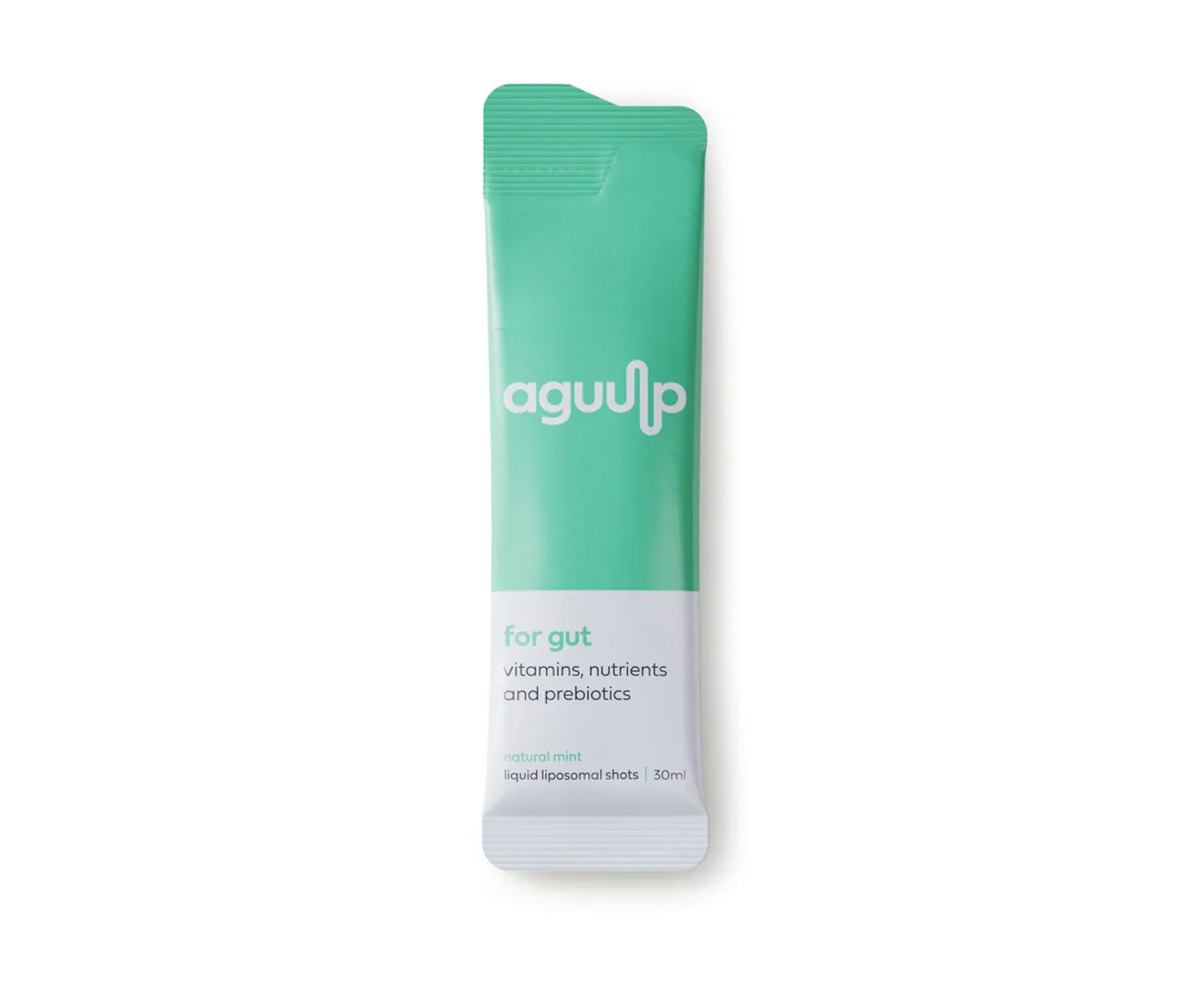
www.aguulp.com
Aguulp is a supplement brand co-owned by musician Professor Green, which offers 30ml travel-sized liquid supplements. Aguulp for Gut is a mint-flavoured prebiotic designed to optimise your digestion as it contains a blend of soluble fibre, prebiotics, vitamins and amino acids. This helps feed and stimulate good bacteria growth in the gut and aids normal bowel function. The gut supplement contains a powerful blend of soluble fibre, prebiotics (Inulin, GOS, FOS), vitamins and amino acids. Unlike probiotics, prebiotics do not actually contain bacteria. They are fuel to allow bacteria to grow.
Ellen says: "If you forget to take pills frequently and would rather take a liquid supplement, this would be an excellent choice for you. After trying out many prebiotics and probiotics over the years, I have found that liquid supplements seem to have the best effect. In my personal experience, they have a more significant impact on my bowel movements and improve my digestion. This liquid prebiotic has been a lifesaver for me - especially when travelling or going on short trips. They come in 30ml individual sachets, which can fit in your hand luggage liquid allowance as they are under the 100ml limit. I went on a two-week holiday and was able to bring 15 sachets with no issue.
"The mint flavour is excellent and perfect for taking in the morning. I take it as soon as I wake up and wait 10 minutes before eating or drinking anything. I find this helps it work better and gives my digestive system a kickstart for the day."
Pros
- Liquid prebiotic that comes in individual 30ml sachets – perfect for travel and on the go
- The sachets don’t require refrigeration
- Prebiotics contain soluble fibre, vitamins and amino acids
- Great for constipation and assisting bowel movements
Cons
- Not a probiotic
TestedBest probiotic with digestive enzymes
Tested
The ARTAH Enhanced Synbiotic offers support for the microbiome and chances your overall wellbeing and digestion. It contains scientifically studied probiotic strains, digestive enzymes, and unique polyphenolic prebiotics derived from cranberry and pomegranate. This probiotic has the added benefit of powerful plants in addition to essential prebiotic support. Plus, the digestive enzymes help to break down food and aid with nutrient absorption.
Ellen tried these and says: "These are one of the cleanest and most effective probiotic capsules on the market. They contain polyphenol prebiotics rather than fibre-based prebiotics, which can sometimes lead to bloating. When travelling, I heavily relied on these capsules as not only did they keep my gut happy but aided with digestion which is necessary when you eat foods that your body is not used to. They were not bloating and kept my immune system in top shape while being on the go."
Pros
- Supports diverse and healthy microbiome, improves digestion and IBS symptoms
- Aids post-antibiotic recovery
- Includes probiotic strains and cranberry PACs for sexual health
- Contains digestive enzymes that help to break down proteins, fats and carbs
- Comes in a glass jar that can be reused or recycled
Cons
- Higher price-point than other products available
Best probiotic for first-time users
Tested
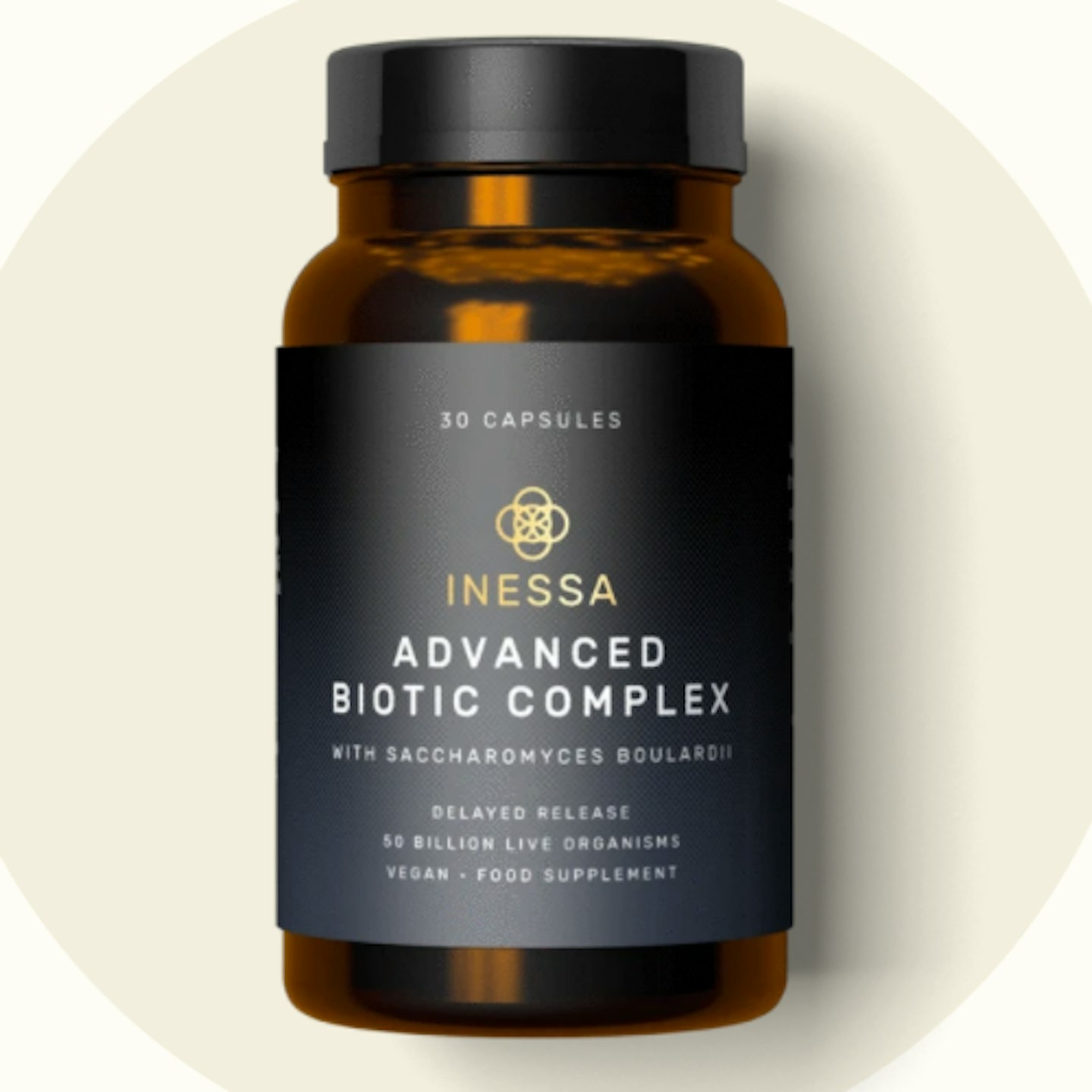
www.inessawellness.com
Inessa advanced biotic complex has been specifically designed to cater for those with irritable bowel syndrome (IBS), Crohn’s disease and ulcerative colitis (IBD). Inessa’s founder, registered nutritional therapist Aliza Marogy, was diagnosed with IBD as a teenager. This daily probiotic contains the best-studied probiotic strain in the world – Lactobacillus Rhamnosus GG. The capsule contains 50 billion organisms and combines seven other probiotic strains which are known to help with IBS and IBD such as saccharomyces boulardii, a probiotic yeast shown to reduce inflammation of the colon to soothe the gut. This award-winning probiotic contains no prebiotics, so it is suitable for those who follow a low-Fodmap diet.
Our tester said: "I would recommend Inessa's range of probiotics to anyone with a busy lifestyle. Inessa Advanced Daily Biotic contains one of the most researched live bacteria strains, Lactobacillus Rhamnosus GG bacteria, and is a great first probiotic to take if you are new to the probiotic world. Additionally, the Inessa Advanced Daily Biotic probiotic provides extra support for when you are traveling, have an inconsistent routine, or are taking antibiotics. One of the best parts is that it does not need to be refrigerated and comes in a small compact bottle, optimal for storing in your bag or bedside table. I usually take it in the morning, around the same time as breakfast, and it helps with my IBS and bloating.
"Another Inessa product that works wonders is the Biosoothe capsules. If you are experiencing bloating or inflammation, this capsule contains ginger, turmeric, zinc, and vitamin D3 to calm your stomach. Since taking this capsule after dinner, I have noticed it has helped me feel less bloated, especially after eating more greasy or dense meals."
Pros
- Provides 10 Billion CFU from Lactobacillus Rhamnosus GG in each capsule
- Best studied probiotic strain in the world – Lactobacillus Rhamnosus GG
- Compact bottle is handy if you're travelling
- Supports your digestion, restores balance in your digestive tract, and helps skin health and immunity
Cons
- A subscription is better value
Best raw probiotic
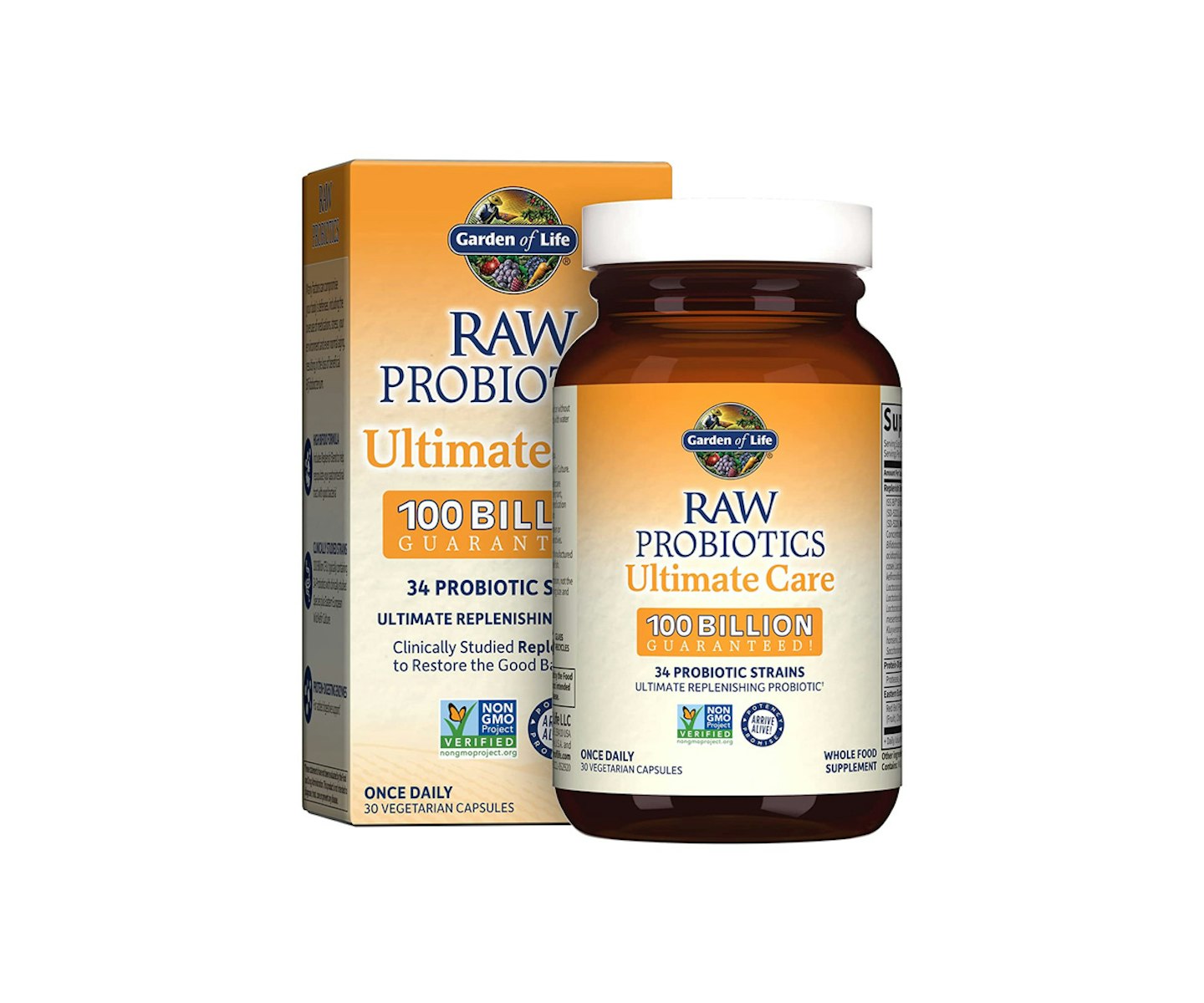
The easy-to-swallow vegetarian capsule has a whopping 100 billion colony-forming units (CFU) – the number of viable bacteria per dose – from 34 clinically studied strains, including lactobacillus and Bifidobacterium. It offers all the benefits of a true food probiotic with an impressive 30+ probiotic strains. This raw probiotic is a whole-food supplement that emulates eating fermented food. That’s not all – you’ll also get a high-potency dose of raw probiotics thanks to Bulgarian yoghurt concentrate, wild European kefir grains and scobies, and concentrated clinically studied probiotics strains.
This Amazon's Choice recommended product has 1,630 reviews rating it 4.2 out of 5. Customers say they are one of the more expensive probiotics out there, but they are very good quality. One comments that there was a difference in how often they were falling ill before taking the probiotics; now their immune system has been boosted.
Pros
- Raw probiotic strains, from wholefood sources, for natural diversity
- Enzymes break down proteins for better digestion
- Offers 100 billion CFUs in a concentrated form that's easy to take
- Several endorsements, recognising it's organic, gluten-free, non GMO
Cons
- Not suitable for vegans
Best probiotic powder
This probiotic powder is a fantastic option for those not wanting to take a capsule. To use just, simply mix a 15g serving of Biomel complete gut powder with your milk for a delicious shake that contains 25 billion probiotic cultures from 13 different strains, prebiotic fibres, digestive enzymes, and vitamins and minerals such as vitamins B6, B12 and D and calcium. Alternatively, you can add the powder to a smoothie. It comes in two flavours – Belgian chocolate and unflavoured to suit your needs best.
Customers say it tastes great, sprinkled on cereal or made into a shake. A little is enough, no more than a couple of teaspoons, otherwise it can have the opposite effect. For most, it reduces bloating and gut discomfort. It also promotes regular motions and reduce gas. However, customer reviews indicate that it doesn't work for everyone. Also, do check the ingredients before consuming if you have any major intolerences.
Pros
- 13 unique strains to add diversity to your gut biome
- Contains prebiotics and enzymes to improve digestion
- Contains Vitamins B6, B12, D and calcium
- In powder form – add to food or blend in a shake – alternative to swallowing capsules
Cons
- Some may prefer the convenience of capsules
Best probiotic for women over 50
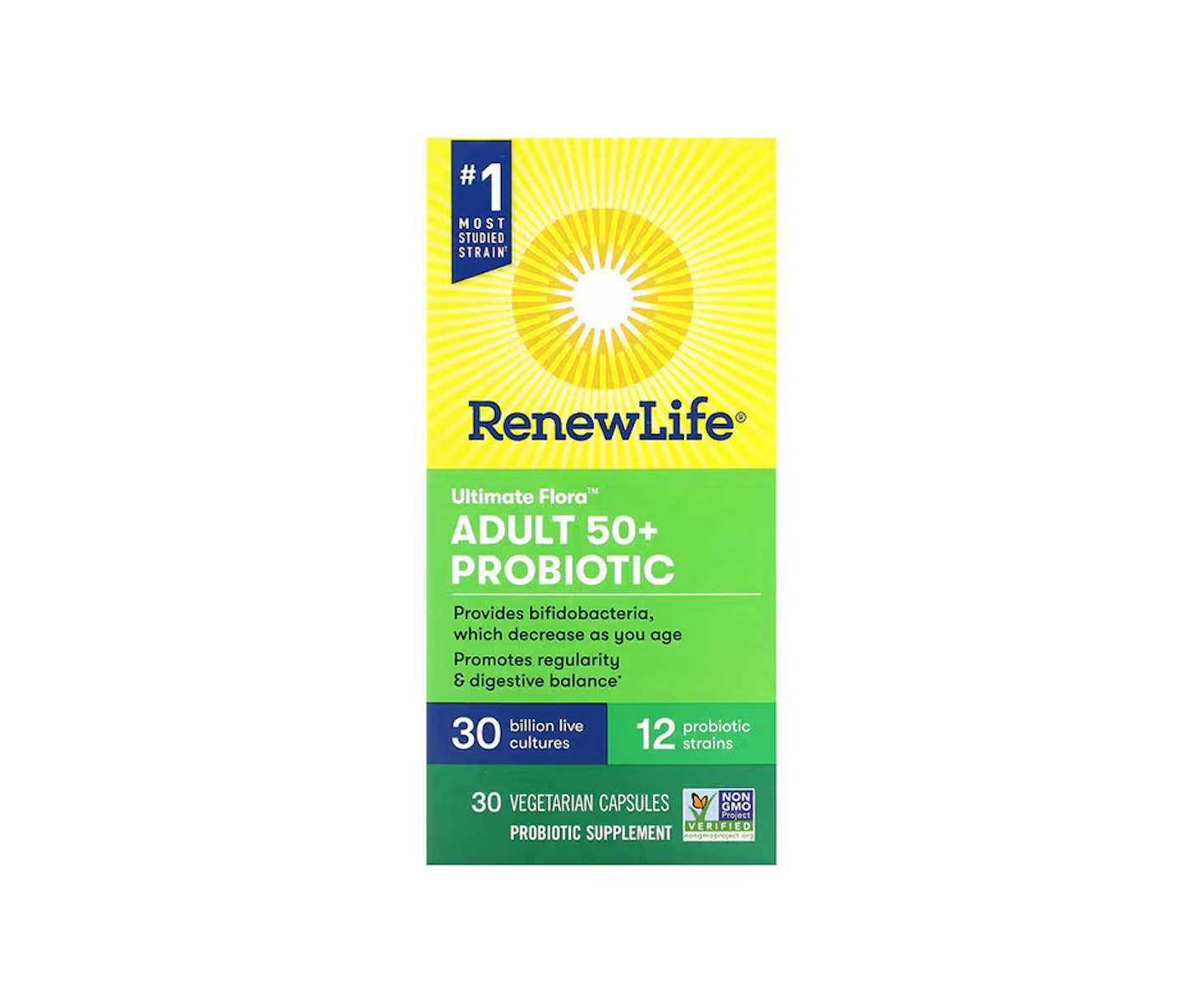
uk.iherb.com
One of the most powerful types of bacteria found in a healthy digestive system is Bifidobacteria. However, the amount of Bifidobacteria found in the gut tends to decline with age. This can lead to an overall decline in nutritional absorption. Renew Life’s Ultimate Flora probiotic can tackle this as it is made with 12 strains of Bifidobacteria and 30 billion active cultures per serving. It is also free from gluten, dairy, and soy.
Customers rate the quality of this probiotic, with its clean ingredients, this is a repeat purchase for many. Also, reviews indicate that it's easy to swallow and a good option if you're travelling as it doesn't necessarily need refrigerating.
Pros
- Contains 12 strains of Bifidobacteria, puts good bacteria back in your gut
- Receive 30 billion CFU per serving in a concentrated form that's easy to swallow
- Promotes regularity and digestive balance and supports immune health
- A gluten, dairy and soy-free formula
Cons
- Best when refrigerated
Best probiotic for a healthy urinary tract
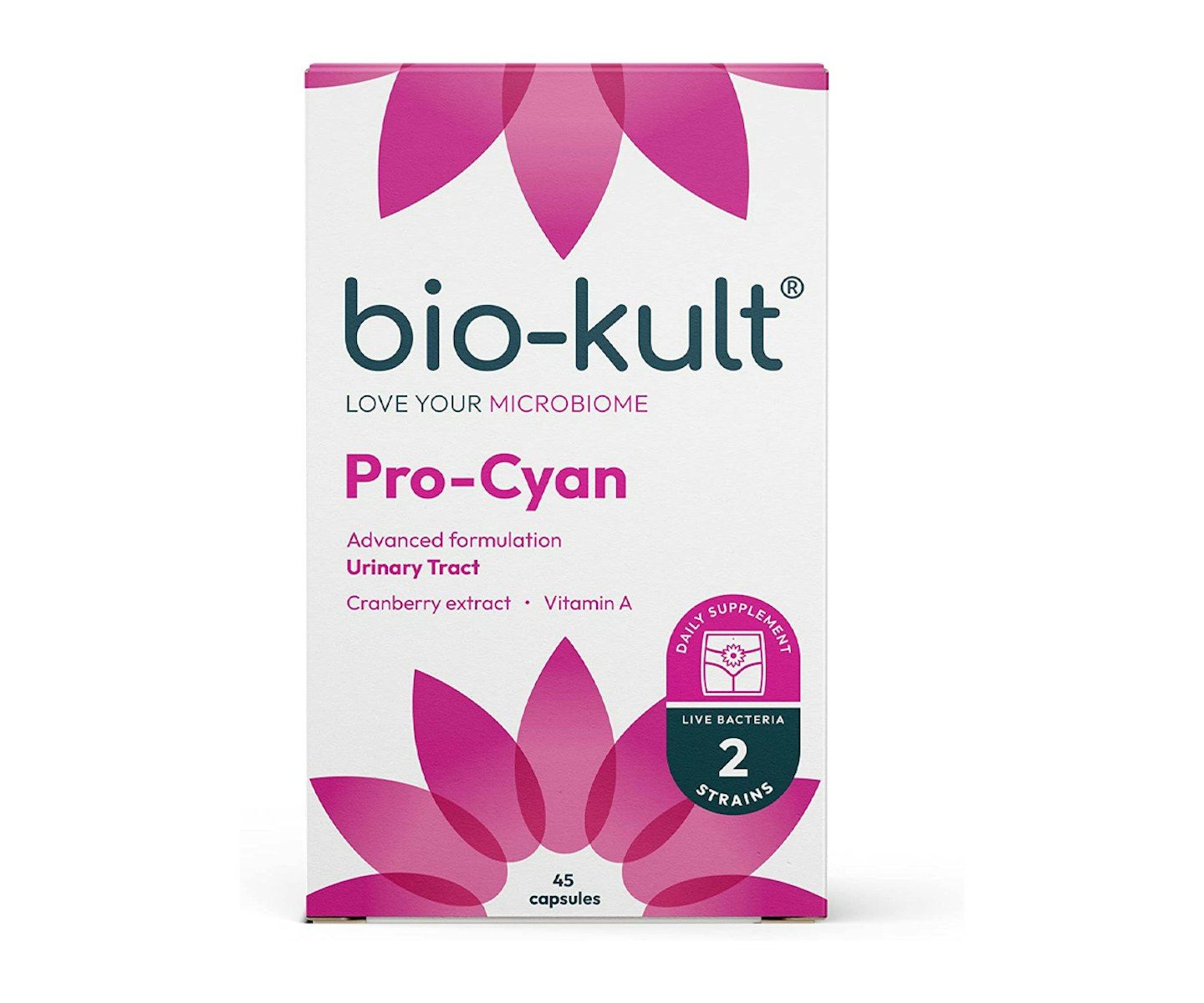
This probiotic promotes good urinary tract health and delivers digestive and immune system support. The Bio-Kult Pro-Cyan is a triple-action formula that combines cranberry extract, live bacteria strains, and vitamin A to support the immune system and maintain the health of the mucous membranes in the urinary tract. It is suitable for vegetarians, does not require refrigeration, and can be taken alongside antibiotics.
Customers have found this probiotic effective at preventing or recovering from UTIs. But one comments that a packet really only lasts two weeks as you need to take three a day. However, if this works for you it's better than repeated courses of antibiotics. Customers say their quality of life has improved. It's helped people keep cystitis and reoccurring water infections at bay.
Pros
- Triple action formulation with 36 mg PACs
- Has vitamin A for added immune system support
- Made with whole cranberry to support healthy urinary tract function
Cons
- Contains animal products
Buyer's guide: Best probiotics for women over 50
What to consider when choosing probiotics
A general recommendation is to select probiotic products with at least one billion colony-forming units and containing the genus Lactobacillus, Bifidobacterium or Saccharomyces boulardii, some of the most researched probiotics.
• Not all probiotics will work for you: It may take some trial and error to find the probiotic that will work for you and show results. If after a few weeks you notice no benefits, try a different probiotic with a different strain of bacteria.
• Probiotics may cause bloating and gas - that means it's working: At first, you may notice some changes in your stool patterns or have some gas and occasional bloating — these are all indications that the product is working, says Gail Cresci, PhD, RD, an intestinal microbe specialist with Cleveland Clinic’s Department of Gastroenterology, Hepatology, and Nutrition.
• How many CFUs (Colony-forming units) do you need?: There are two ways of approaching probiotics. If you think your gut and overall health are good and you are looking to regulate your good gut health, then a low number may be all you need. If you have IBS or require a gut health detox, then a higher number would be beneficial. Additionally, as our immune systems weaken as we age, a higher number may be necessary for women over 50 to stay healthy and see significant results. A probiotic with a CFU ranging from 25 to 50 billion is a great place to start out.
• Prebiotic foods: Eating prebiotic foods will help your good bacteria flourish. These include beans, asparagus, onions, green bananas, and other fermentable fibre sources in your diet.
Probiotics are generally recognized as safe, but they’re typically not recommended if you have a compromised immune system. Ask your physician if probiotics are right for you.
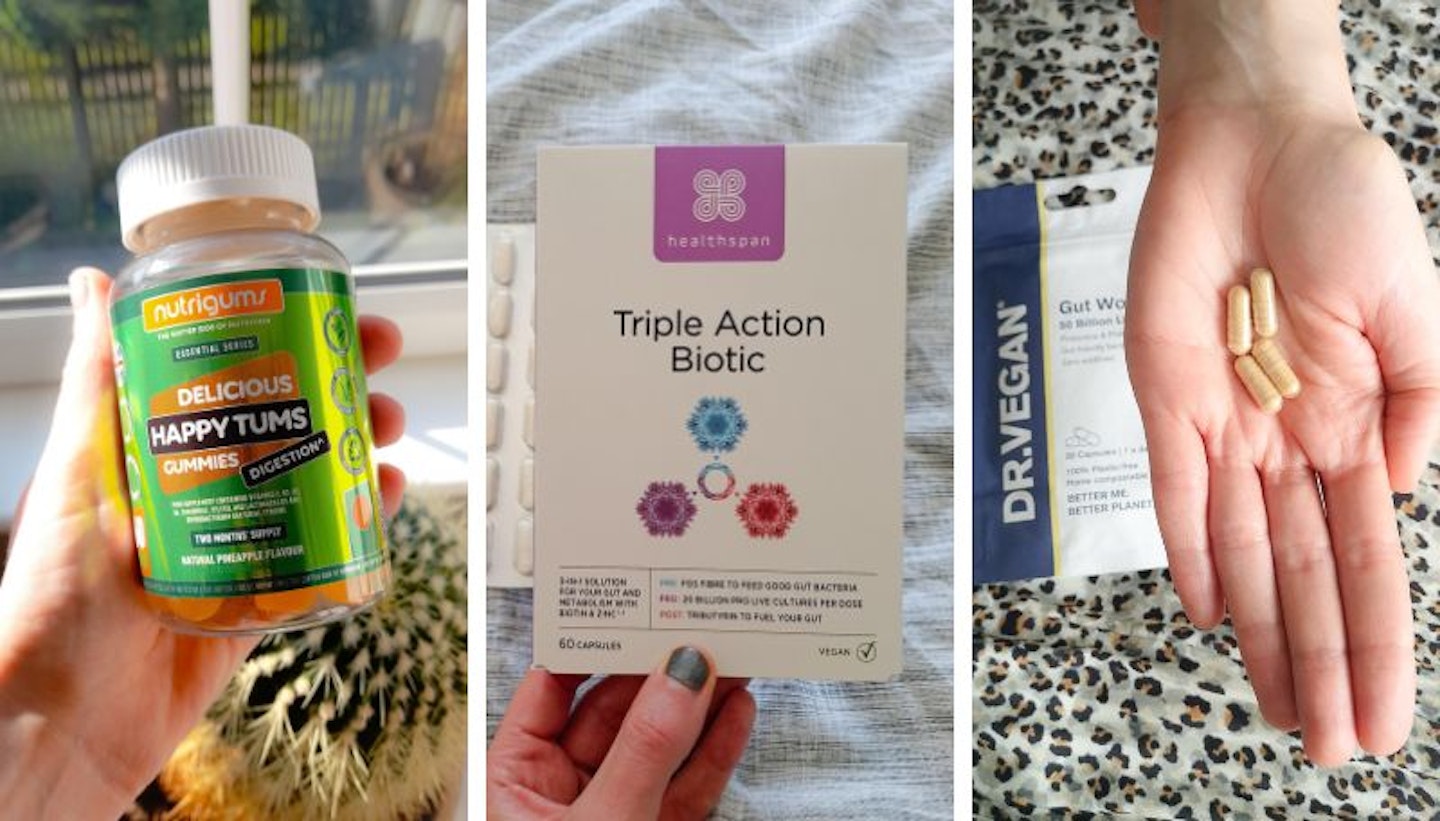
What are probiotics?
According to New York-certified dietitian nutritionist Alissa Rumsey, “Probiotics are beneficial bacteria that replenish our body’s micro-biome with healthy cultures while helping to control the growth of harmful bacteria in our gut.”
When the word ‘bacteria’ comes to mind, your first thought isn’t usually positive. However, these bacteria are extremely beneficial for our bodies in many ways. They produce vitamins B and K, and stimulate enzymes that break down certain food components, which help the immune system by encouraging the development of antibodies.
Probiotics are not only founded in capsules but in many fermented foods such as yoghurt, some aged cheeses such as Gouda, mozzarella, cheddar, cottage cheese, sauerkraut, kimchi, tempeh, and kombucha. Fermentation is a metabolic process where sugar is converted to acids, gases, or alcohol.
The benefits of probiotics include reducing diarrhoea, especially antibiotic-associated diarrhoea; it may enhance your immune responses, helps with irritable bowel syndrome, promotes good gut health, and can help your overall digestive function.
Probiotics are not also only related to your digestion but are also known to lower blood pressure. It can also be beneficial to dental health, support some skin conditions, improve vaginal health, and it may be beneficial for brain function such as helping ease anxiety and depression.
What do probiotics do?
Probiotics are beneficial for everyone – but will be especially helpful for those that struggle with digestive issues or need a gut reset. If you have food intolerances, suffer from diarrhoea or constipation, trapped wind, or gastric reflux, then you will greatly benefit from using probiotics.
“Probiotics are thought to play a role in preventing and treating certain conditions, such as diarrhoea, irritable bowel syndrome, ulcerative colitis, and Crohn’s disease,” says Rumsey.
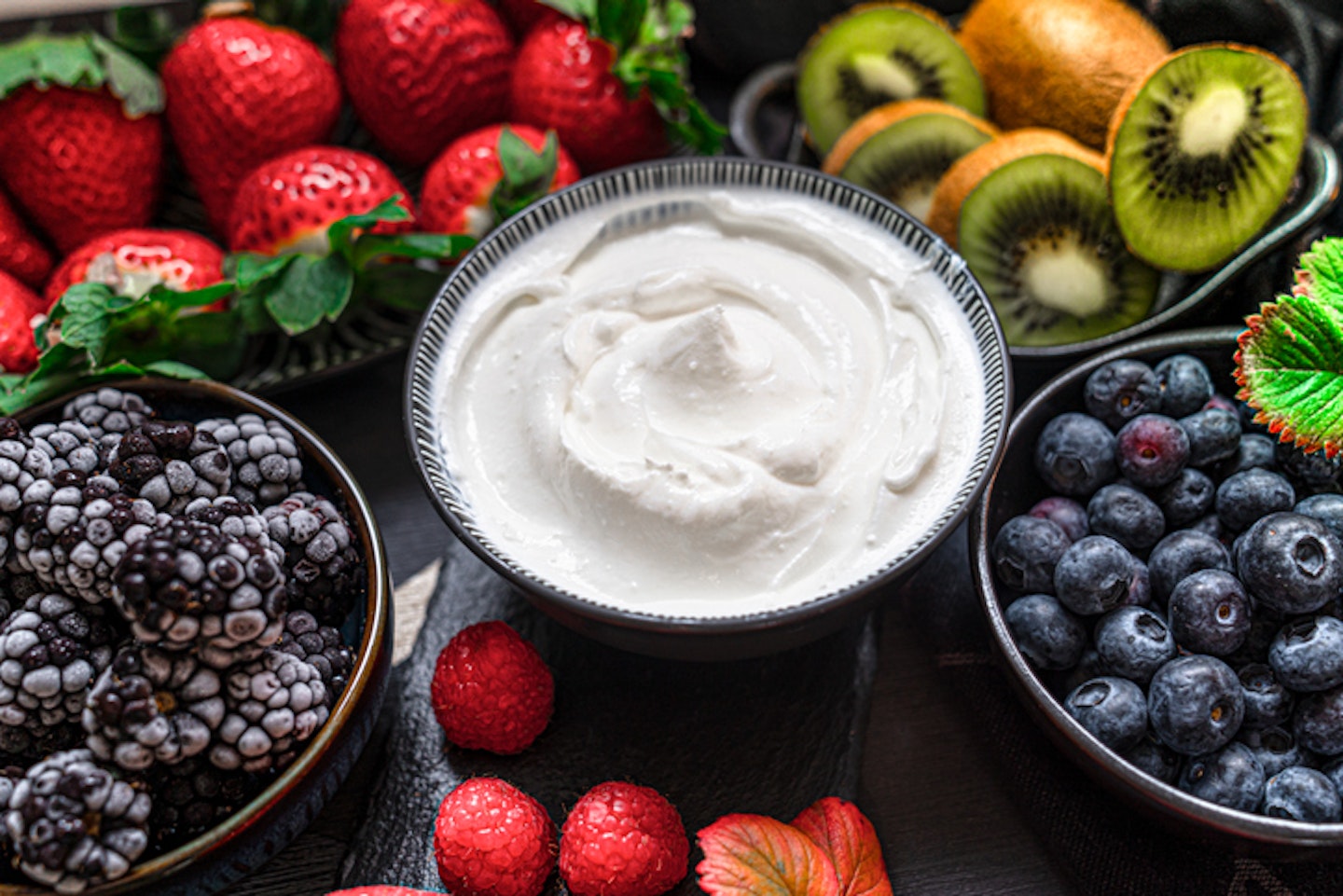
FAQs with Dr Sammie Gill
How do you know if a probiotic strain is compatible with you?
Finding the right probiotic that works for you isn't always a straightforward process. We asked Dr. Gill for her suggestions on finding an effective probiotic that fits your needs.
"We know more about the gut microbiome than we ever have done, but we’ve still got a long way to go. We haven’t yet cracked the gut microbiome code and there is still a lot we don’t know. It’s an incredibly complex and dynamic ecosystem that has the power to influence all aspects of health," she says.
"As we transition towards a more personalised nutrition approach, assessing which particular strains are beneficial for an individual in terms of prevention or management of health will come to light.
"At the moment, we don’t know what a ‘healthy’ gut microbiome looks like, although diversity is thought to be key. There are certain microbes that have been linked with the development of disease, but again, it’s early in our understanding. The microbiome is made up of around 40 trillion microbes!
"One of the key challenges is that your gut microbiome is unique to you (a bit like a fingerprint). What’s more, the gut microbiome isn’t static – it has a high level of plasticity and will change depending on what it is exposed to. It’s mouldable - for example, nutrition studies have shown that switching from a meat-based to a plant-based diet can shift gut microbiome composition within 48 hours."
Do you need to take a prebiotic and a probiotic?
While both prebiotics and probiotics support gut health, they work in different ways when they reach the gut.
"Prebiotics are mainly types of fermentable fibre that act as ‘food’ for your resident gut microbes to feast on. On the other hand, probiotics are live microbes that you’re ‘adding in’ and that prompt favourable health effects as they move through your gut. Prebiotics naturally occur in many plant-based foods including onion, garlic and bananas.
"You can consume live microbes through foods such as natural yoghurt and some fermented foods but they are not necessarily probiotic microbes with established or known health benefits.
"What’s most important is choosing the correct gut microbiome targeted therapy depending on your individual circumstances. Generally, there has been more research exploring the health effects of probiotics than prebiotics in specific health scenarios such as IBS and antibiotic-associated diarrhoea.
"The overwhelming amount of evidence for probiotic use focuses on specific health conditions, though some people may simply choose to take as a type of ‘insurance policy’ to support their gut health."
Gut health and your immune system are extremely interlinked, and vitamin D is one of the many factors that helps keep the microbiome healthy and some of the best vitamin D supplements can contribute to that.
Do probiotics interfere with medication?
"In general, probiotics are not thought to interact with medications, though it’s an area that hasn’t been extensively researched – in fact, there are relatively few studies and mostly in animal models. There are still a lot of unknowns," states Dr Gill.
"Since probiotics are often taken long-term, co-administration with other medications is frequently unavoidable. In reality, any food supplement (including probiotics) has the potential to interact with medications.
"The general consensus is that probiotics have a good safety profile."
Are fermented foods better or less effective than probiotic supplements?
**"**Probiotics have a specific definition attached to them – they are live microbes that when consumed, support the gut microbiome and offer health benefits. The evidence for probiotic use is targeted to specific health scenarios. A good quality probiotic will state the specific microbes present to strain level and amount, so you know exactly what you’re getting.
"Fermented foods may or may not contain live microbes. If they are live, it doesn’t necessarily mean they function as probiotic microbes. The microbes in fermented foods are more generic - you often don’t know what you’re getting. Saying that, fermented foods are a healthy addition to any diet and they often contain other nutrients that support gut health. For example, fermented soya beans (miso or natto) are a good source of fibre, prebiotics and other plant chemicals, with or without the live microbes.
"If it’s for a specific health need (e.g. symptom management), trial a science-backed probiotic."
What is the most effective form of probiotic?
Dr Gill breaks down how we can tell if a probiotic is effective. "For probiotics to exert their beneficial effects, they must reach the gut in a live state. Unfortunately, many probiotics on the market are not evidence-based. It’s important to choose for a probiotic that has been shown to have a positive effect on the symptoms you are hoping to target. Contact the probiotic manufacturer and ask for links to their published research.
"There is good evidence for taking probiotics in certain scenarios, so it’s important to take a prescriptive approach. Importantly, not all probiotics are equal and different strains do different things. If you’re considering taking a probiotic, do your homework and choose one that is science-backed."
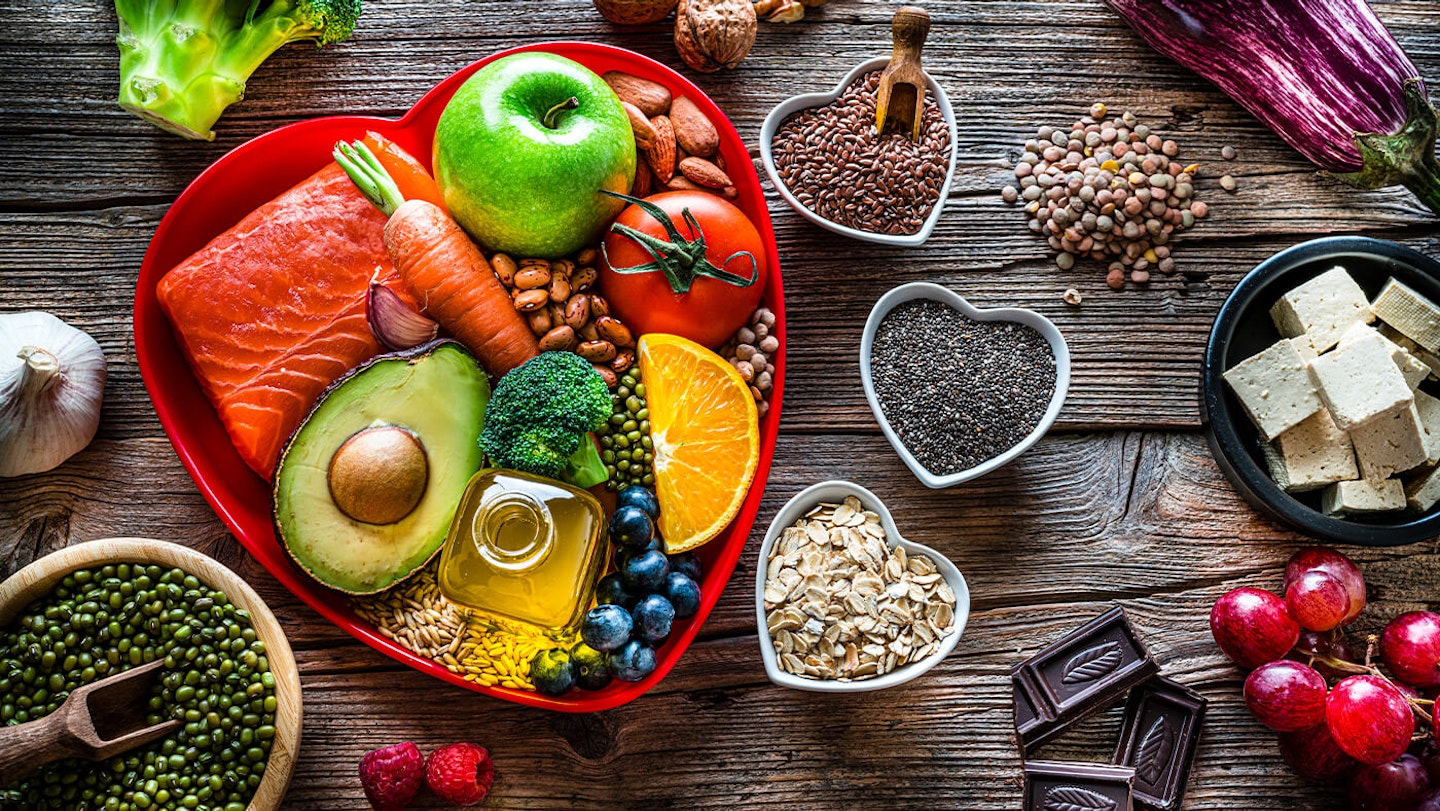
Meet the experts:
This article contains expert advice from Symprove's registered dietician, Dr Sammie Gill and registered dietitian, and certified intuitive eating counsellor, Alissa Rumsey. We've made sure to review and evaluate each supplement we have recommended with the help of expert professionals. Always speak with a healthcare professional before starting a new supplement regime. This will ensure that the supplement is appropriate to you, that you're taking the right dosage for your individual needs, and to ensure it doesn't interact with prescription or over-the-counter medications you may be taking.
Ellen Kinsey was a Senior Health and Wellness Product Writer and has been a part of Bauer Media since 2020. She has left to study Ayurveda in India to expand her knowledge and skills in the health and wellness field, where she plans to continue making journalistic contributions.
.




